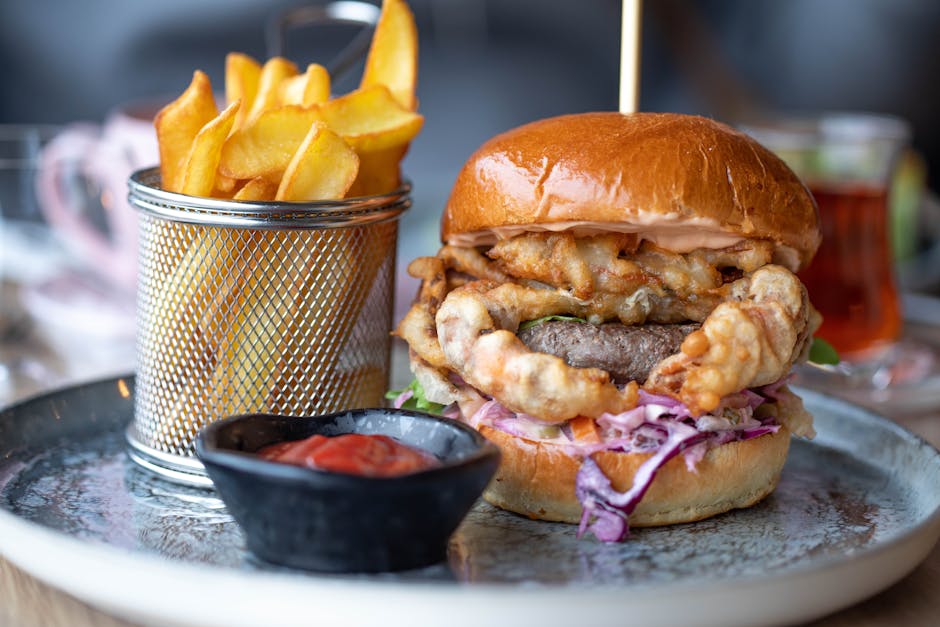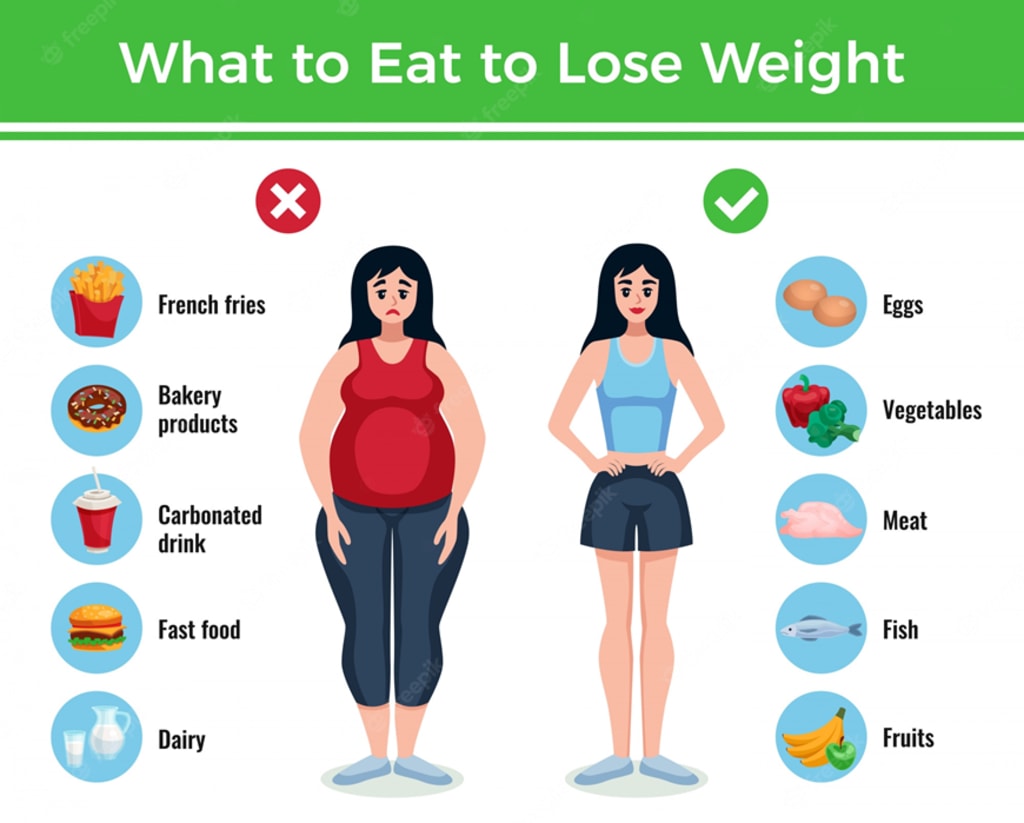Weight-loss basics

The Importance of a Balanced Diet for Weight Loss
Are you tired of trying every fad diet out there, only to end up disappointed and still carrying around those extra pounds? Well, it’s time to get back to the basics of weight loss. And one of the most important aspects of shedding those unwanted pounds is maintaining a balanced diet.
Now, I know what you’re thinking. “But I’ve heard that I need to cut out carbs completely!” or “I’ve been told that I should only eat protein!” It’s true that there are many conflicting opinions out there, but the truth is that a balanced diet is key to sustainable weight loss.
So, what exactly does a balanced diet mean? It means consuming a variety of foods from all the major food groups in the right proportions. This includes fruits, vegetables, whole grains, lean proteins, and healthy fats. By including a little bit of everything in your diet, you ensure that your body gets all the nutrients it needs to function properly.
One of the main benefits of a balanced diet is that it helps you maintain a healthy weight. When you eat a variety of foods, you’re less likely to overeat or indulge in unhealthy snacks. Plus, a balanced diet provides your body with the energy it needs to stay active and burn calories.
Another important aspect of a balanced diet is portion control. It’s not just about what you eat, but also how much you eat. By being mindful of your portion sizes, you can prevent overeating and keep your calorie intake in check. This doesn’t mean you have to measure every single bite, but it’s helpful to have a general idea of what a healthy portion looks like.
In addition to helping with weight loss, a balanced diet also has numerous other health benefits. It can reduce the risk of chronic diseases such as heart disease, diabetes, and certain types of cancer. It can also improve your digestion, boost your immune system, and give you clearer skin. So, by focusing on a balanced diet, you’re not just losing weight, but also improving your overall health.
Now, I know that changing your eating habits can be challenging. It’s not easy to give up your favorite comfort foods or resist the temptation of unhealthy snacks. But remember, a balanced diet is not about deprivation. It’s about making healthier choices most of the time while still allowing yourself to enjoy the occasional treat.
To make it easier, start by making small changes to your diet. Swap out sugary drinks for water or herbal tea. Replace processed snacks with fresh fruits or nuts. Cook more meals at home using whole ingredients instead of relying on takeout or pre-packaged meals. These small changes can add up over time and make a big difference in your weight loss journey.
In conclusion, a balanced diet is essential for weight loss. By including a variety of foods from all the major food groups and practicing portion control, you can achieve sustainable weight loss while improving your overall health. So, forget about the fad diets and get back to the basics. Your body will thank you!
Effective Exercise Routines for Weight Loss
So, you’ve decided to embark on a weight-loss journey. Congratulations! Now, one of the most important aspects of losing weight is incorporating effective exercise routines into your daily routine. Exercise not only helps you burn calories, but it also improves your overall health and well-being. But with so many exercise options out there, how do you know which ones are the most effective for weight loss? Well, let’s dive into some tried-and-true exercise routines that can help you shed those extra pounds.
First up, we have cardio exercises. These are great for getting your heart rate up and burning calories. Running, jogging, cycling, and swimming are all excellent choices. Not only do they help you burn calories during the workout, but they also keep your metabolism elevated for hours afterward. Plus, they’re easy to incorporate into your daily routine. You can go for a run in the morning, take a bike ride in the evening, or even swim laps during your lunch break. The key is to find an activity that you enjoy and can stick to consistently.
Next, let’s talk about strength training. Many people mistakenly believe that strength training is only for building muscle, but it’s actually a fantastic way to burn fat as well. When you engage in strength training exercises, such as lifting weights or using resistance bands, you’re not only building lean muscle mass, but you’re also increasing your metabolism. This means that even when you’re not working out, your body is still burning calories. So, don’t be afraid to pick up those dumbbells and start pumping iron. You’ll be amazed at the results.
Now, let’s move on to high-intensity interval training, or HIIT for short. This type of workout involves short bursts of intense exercise followed by brief periods of rest. HIIT workouts are incredibly effective for weight loss because they maximize calorie burn in a short amount of time. You can do HIIT workouts with just about any exercise, whether it’s running, cycling, or even bodyweight exercises like burpees and mountain climbers. The best part is that you can complete a HIIT workout in as little as 20 minutes, making it perfect for those with busy schedules.
Lastly, let’s not forget about the importance of flexibility and balance exercises. While these may not directly contribute to weight loss, they play a crucial role in overall fitness and injury prevention. Yoga, Pilates, and tai chi are all excellent options for improving flexibility and balance. Plus, they can help reduce stress and improve your mental well-being. So, don’t neglect these types of exercises in your weight-loss journey.
In conclusion, effective exercise routines are a vital component of any weight-loss plan. Cardio exercises, strength training, HIIT workouts, and flexibility exercises all have their place in helping you shed those extra pounds. The key is to find activities that you enjoy and can stick to consistently. Remember, it’s not just about losing weight; it’s about improving your overall health and well-being. So, lace up those sneakers, grab those dumbbells, and get moving. Your body will thank you.
Tips for Maintaining Motivation during a Weight Loss Journey
Losing weight can be a challenging journey, but with the right mindset and motivation, it is definitely achievable. However, staying motivated throughout the process can be tough. That’s why I’m here to share some tips on how to maintain your motivation during your weight loss journey.
First and foremost, it’s important to set realistic goals. Many people make the mistake of setting unrealistic expectations for themselves, which can lead to disappointment and loss of motivation. Instead, set small, achievable goals that you can work towards. For example, aim to lose 1-2 pounds per week rather than setting a goal to lose 10 pounds in a month. By setting realistic goals, you’ll be more likely to stay motivated as you see progress.
Another tip for maintaining motivation is to find a support system. Surround yourself with people who will encourage and support you on your weight loss journey. This could be friends, family members, or even joining a weight loss support group. Having someone to share your successes and struggles with can make a huge difference in staying motivated.
In addition to having a support system, it’s also important to celebrate your achievements along the way. Losing weight is not an easy task, so be sure to reward yourself for your hard work. Treat yourself to a massage, buy a new outfit, or indulge in a small treat (in moderation, of course). By celebrating your achievements, you’ll feel more motivated to keep going.
One of the biggest challenges in maintaining motivation is dealing with setbacks. It’s important to remember that setbacks are a normal part of any weight loss journey. Don’t beat yourself up over a slip-up or a bad day. Instead, learn from it and move on. Remember why you started this journey in the first place and use setbacks as an opportunity to grow and improve.
Another tip for staying motivated is to track your progress. Keep a journal or use a weight loss app to record your food intake, exercise, and measurements. Seeing your progress on paper can be incredibly motivating. It can also help you identify patterns or areas where you may need to make adjustments. Plus, looking back at how far you’ve come can be a great source of motivation when you’re feeling discouraged.
Lastly, don’t forget to take care of yourself. Losing weight is not just about the number on the scale, but also about improving your overall health and well-being. Make sure you’re getting enough sleep, eating nutritious foods, and taking time for self-care. When you feel good physically, it’s easier to stay motivated and focused on your weight loss goals.
In conclusion, maintaining motivation during a weight loss journey can be challenging, but it’s not impossible. Set realistic goals, find a support system, celebrate your achievements, learn from setbacks, track your progress, and take care of yourself. Remember, this is a marathon, not a sprint. Stay motivated, stay focused, and you will reach your weight loss goals.







